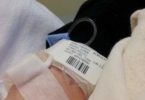What's in this article?
Flatulence (Gas) Overview
Intestinal gas is always present throughout the length of the digestive tract, from the stomach to the rectum. We notice intestinal gas only if it is excessive or causing pain.
Excess intestinal gas in the stomach or upper intestine may result in excess burping or belching. Excess intestinal gas in your lower intestine may result in increased gas being passed from your anus (flatulence). Excess gas from either location can cause cramping or pain, often without an obvious pattern.
Most people burp occasionally and people pass gas rectally several times a day as a normal part of daily activities and food breakdown. Sometimes, excessive intestinal gas can indicate a digestive disorder.
Flatulence (Gas) Symptoms
Symptoms of flatulence are increased passage of gas, and abdominal bloating or pain, and belching. Embarrassment can be caused by the increased passage of flatus or the often-offensive odor it causes.
- Gas: Everyone passes gas normally each day. A certain amount of gas is present in the GI tract at any one time, mainly in the stomach and colon. The average person passes gas about 10 times each day and up to 20-25 times is considered normal. More than that may be excessive.
- Belching: An occasional belch during or after meals is normal and releases gas when the stomach is full of food. But if a person belchs frequently, he or she may be swallowing too much air and releasing it before the air enters the stomach. Some people swallow air to make themselves belch, thinking it will relieve their discomfort. This practice may turn into an annoying habit. Belching may signal a more serious upper GI disorder such as peptic ulcer disease, gastroesophageal reflux disease (GERD), or gastroparesis.
- Abdominal bloating: Many people believe that too much gas causes abdominal bloating. However, people who complain of bloating from gas often have normal amounts of gas. They actually may be unusually aware of gas in the digestive tract. A diet of fatty foods may delay stomach emptying and cause bloating and discomfort, but not necessarily too much gas. Certain conditions may cause bloating, such as irritable bowel syndrome, Crohn’s disease, or colon cancer. People with scar tissue (adhesions) from abdominal operations or internal hernias may have a sensation of bloating because of increased sensitivity to gas.
- Abdominal pain and discomfort: Some people have pain when gas is present in the intestine. When pain is on the left side of the colon, it can be confused with heart disease. When the pain is on the right side of the colon, it may mimic gallstones or appendicitis.
Causes of Intestinal gas or Flatulence
Excess upper intestinal gas may result from swallowing more than a usual amount of air while eating, drinking or chewing gum. Lower intestinal gas is the normal byproduct of bacterial action on food that is not broken down until reaching the colon. Intestinal gas related to bacterial action is made up of hydrogen, carbon dioxide and sometimes methane.
Foods that cause Gas
Some foods contain substances that aren’t fully digested until they are acted upon (metabolized) by the bacteria in the lower intestine, where they’re broken down into simpler substances, including gas. Common gas-producing foods and substances include:
- Beans and lentils
- Dairy products containing lactose
- Fructose and sorbitol, which are found in some fruits and are also used as sweeteners
Digestive disorders that cause gas
Excessive intestinal gas belching or flatulence more than 20 times a day sometimes indicates a digestive disorder such as:
- Celiac disease
- Dumping syndrome
- Food allergy or intolerance?
- GERD Gastroesophageal reflux disease
- Gastroparesis
- Irritable bowel syndrome
- Lactose intolerance
- Peptic ulcer
How Is Flatulence Treated?
Flatulence may be treated in a number of ways, depending on the cause of the problem.
Self-Treatment
There may be ways for you to treat excessive flatulence yourself.
First, look at your diet. If it contains a large amount of difficult-to-digest carbohydrates, try to replace these with carbohydrates that are easier to digest, such as potatoes, rice, and bananas.
Keep a food diary so you can identify any triggers, and eat around six small meals a day instead of three larger ones.
Additionally, avoid doing anything that may increase the amount of air that you swallow. This includes ensuring that food is chewed properly, as well as avoiding chewing gum or smoking.
Some people find that exercising helps to promote digestion and can prevent flatulence.
There are a number of over-the-counter medications that can treat flatulence, although these will only temporarily stop the problem. These include charcoal tablets that absorb gas through the digestive system as well as dietary supplements, such as alpha-galactosidase (Beano).
Medical Care
If your flatulence is unexplained, or if you suffer from other symptoms along with flatulence such as a swollen abdomen or abdominal pain, it is important to see your doctor.
Your doctor will discuss your symptoms with you, including when the problem started, and if there are any apparent triggers.
A blood test may be requested, both to ensure that the body is not fighting an infection and to identify any possible food intolerances.
You are likely to be advised to follow the steps above, including keeping a food diary and changing your eating habits. You may also be referred to a dietician.
In addition, you may be given medication for a specific condition such as IBS, if it is diagnosed, or sent for further tests to get a conclusive diagnosis.





